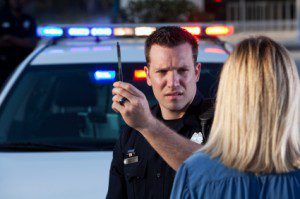 The Governor’s office of North Carolina and the state of North Carolina, has enacted a set of DWI initiatives over the years that has continued to enhance the DWI penalties for offenders. Since the early 2000’s, in excess of 8000 vehicles of repeat offenders have been seized and sold to local school districts for additional funding.
The Governor’s office of North Carolina and the state of North Carolina, has enacted a set of DWI initiatives over the years that has continued to enhance the DWI penalties for offenders. Since the early 2000’s, in excess of 8000 vehicles of repeat offenders have been seized and sold to local school districts for additional funding.
Recently however, courts have also enacted laws that require for an ignition interlock system to be installed where the car will not start if the driver has been drinking and will be required for some repeat offenders.
North Carolina breaks DWI punishment into five levels, Level I being the most serious and Level V being the least serious. As the numbers decrease, the probability of spending time also decreases, and vice versa. The following is a break-down of the Levels of DWI punishment:
Level V: Typical Fine up to $200 and a minimum jail sentence of 24 hours and a maximum of 60 days. A judge can suspend the sentence but upon the condition that the driver spend 24 hours in jail, perform 24 hours of community service or not operate a vehicle for 30 days.
Level IV: Typical fine is up to $500 and a minimum jail sentence of 48 hours and a maximum of 120 days. A judge can suspend the sentence but upon completion that the driver spend 48 hours in jail, perform 48 hours of community service or not operate a vehicle for 60 days.
Level III: Typical fine is up to $1,000 and a minimum jail sentence of 72 hours and a maximum of six months. A judge can suspend the sentence only upon completion that the driver spend at least 72 hours in jail, perform 72 hours of community service or not operate a vehicle for 90 days.
Level II: Typical fine is up to $2,000 and a minimum jail sentence of seven days and a maximum of one year. A judge cannot suspend the minimum sentence.
Level I: Punishable by a fine up to $4,000 and a minimum jail sentence of 30 days and a maximum of two years. A judge cannot suspend the minimum sentence.
Further, someone who has been charged with a DWI with certain aggravating factors may be charged with a Felony DWI.
For Habitual DWI offenders, drivers who have had three prior DWI convictions within the past seven years, DWI becomes a felony. But more importantly, the Habitual DWI statute now mandates a minimum active jail term of one year — a sentence that may not be suspended. Offenders must also go through a substance abuse program while in jail or as a condition of parole.
Offenders Under Age 21: People under age 21 simply cannot drive with any alcohol or illegally-used drugs in their systems — period. Any amount of alcohol will result in an immediate 30 day pretrial revocation. If an underage drinking driver refuses to take such a test, he or she now need only have the smell of alcohol on the breath to be convicted of driving after drinking. Offenders will have their licenses revoked for one year but can get limited driving privileges instated by a judge if the driver was at least 18 years old at the time of the offense and did not have a prior conviction.
Zero Tolerance for Commercial Motor Vehicle Drivers: It’s unlawful for the operator of a commercial motor vehicle to drink and drive. The first offense results in a 10 day disqualification to operate a commercial motor vehicle. The second or subsequent offense revokes the drivers license to operate any vehicle. Further those with CDL’s will be charged with DWI if they operate a commercial vehicle with a B.A.C above 0.04.
Zero tolerance for school bus and school activity bus drivers and child care vehicle drivers drivers: It is unlawful for school bus and school activity bus drivers and child care vehicle operators (day care van etc.) to drink and drive.